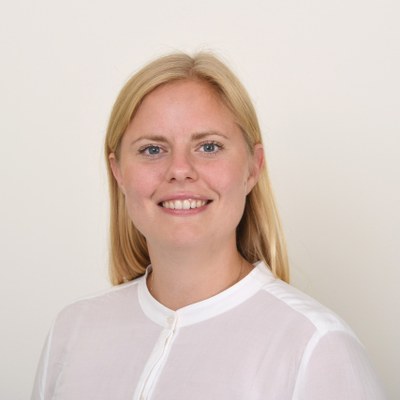Profile of Pernilla Söderberg
Pernilla Söderberg is cycling to work when she hits a traffic jam near Berlin’s Frankfurter Tor. The source of the jam? Climate protesters have glued themselves to the street. Though she’s still kilometers from her desk, the scene throws her into her work. The goal of many such protests is to attract attention to the urgency of acting in response to climate change. But what is really the best way to garner broad support for climate action? What kinds of climate actions and policies will get the mass public on board? And which policies will end up triggering backlash?
These questions are at the heart of Söderberg’s work in the RTG Dynamics research group at Humboldt-Universtät zu Berlin and the Hertie School, where she is a doctoral researcher. Her work centers around the politics of climate change and reactions from the public to climate-related policy.
Söderberg has wanted to be a researcher since the moment she found out it was possible. Having not come from an academic family, that moment happened during her bachelor studies, which she completed in political science in her native Stockholm. She went on to get her MA in international affairs at the Hertie School in Berlin before briefly entering the private sector. After working in public affairs, she decided it was time to follow her passion and pursue a PhD in the Dynamics research group. "I always wanted to do a PhD. It’s one of those paths in life that if, I didn’t pursue it, I would always wonder, ‘What if?’" she told me, while also emphasizing the privileges that have made that possible for her.
Her doctoral research looks at popular attitudes towards climate change, with an emphasis on reactions to climate change policy rather than to the phenomenon of climate change itself. "Most people believe in climate change and many people worry about the impact of climate change. But where we have an issue is when it comes to the solutions. People disagree about how to address the issue and who should pay the costs for mitigation and adaptation." Mitigation and adaptation are two kinds of responses to climate change. While mitigation aims to limit the scope of climate change itself, adaptation is a response to the effects climate change that we’re already seeing. Levies that protect coastal cities against rising sea levels are adaptation, whereas mitigation includes policies like carbon taxes that are intended to reduce emissions and slow down global warming altogether.
In the course of her research, Söderberg noted that while there is abundant work on public responses to carbon tax policies, the research on people’s attitudes towards adaptation is lacking. This will be one focus of her dissertation. Another avenue of inquiry for her addresses an additional gap in the research, namely how climate policies affect voting behavior. And finally, her work is also informed by the observation that climate policies affect different groups of people in different ways. For example, lower income households are more affected by green taxes than higher income households, and people in rural areas are more affected than those in urban areas.
Ultimately, her hope is to produce knowledge that can facilitate political action with regard to climate change. "What I wish to contribute is some type of answer to how can we build broad coalitions in favor of climate action, whether that’s mitigation or adaptation. Because everyone needs to be on board for it to happen," she told me. She wants to uncover solutions that can be implemented without backlash from the public and without leaving anyone behind. While some groups will be more affected by climate policies than others, her hope is that the transition towards sustainability can be as just as possible.
Söderberg’s work towards a better future for the planet is deeply intertwined with her role as a parent. That’s true not only on the day-to-day level of finding time to work amid the many joys and obligations of new motherhood but also as it affects her motivations for researching climate change. "Having a child has changed my perception of where my responsibilities start and end. I want my daughter to be able to live a good life, and also all the other children of her generation worldwide."
And as for her own future? Söderberg hopes to continue along an academic career path, while remaining realistic about how compatible that is with family life. Regardless of whether she ends up in academia or not, she sees herself continuing to pursue the questions she finds interesting and important. "I’m interested in a lot of different things and there are many things that are urgent and many things that we need to have a solution to."
written by Nad Porter-Kasbati

